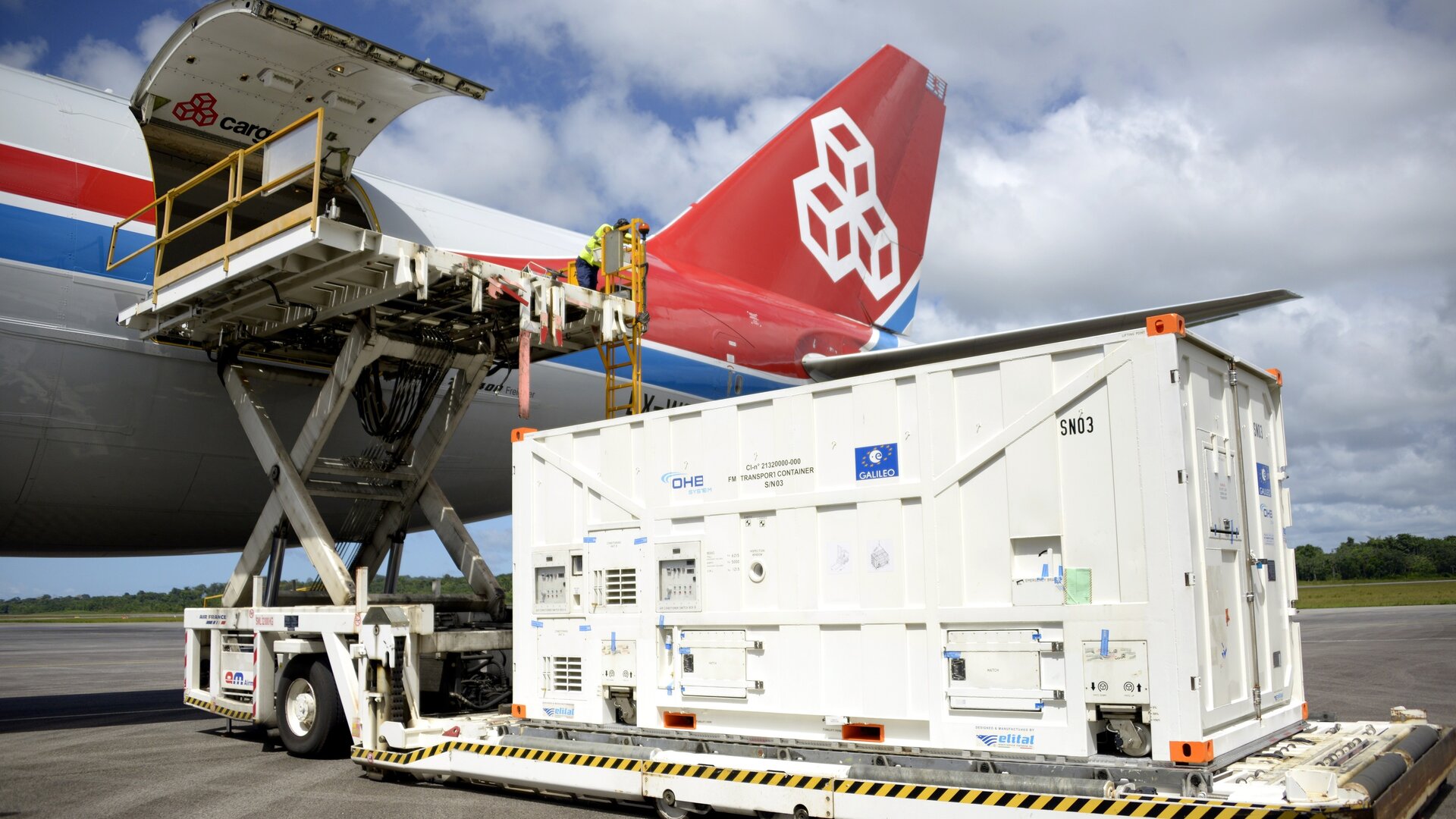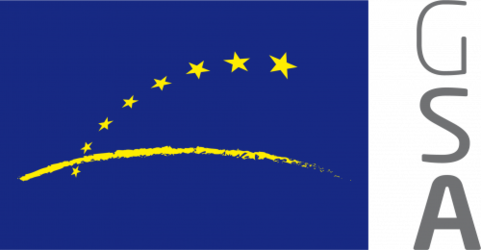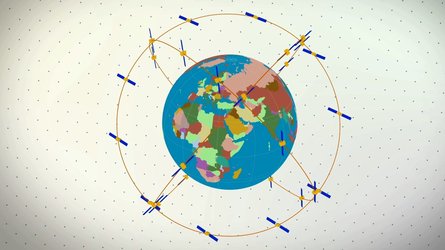Next two Galileos plus launcher at Europe’s Spaceport for July launch
Galileo satellites 25 and 26 have landed at Europe’s Spaceport in Kourou, French Guiana, joining their two predecessors ahead of their 25 July launch by Ariane 5.
The pair left Luxembourg Airport on a Boeing 747 cargo jet on the morning of 1 June, arriving at Cayenne – Félix Eboué Airport in French Guiana that evening.
They were unloaded, still in their protective air-conditioned containers, to be driven by truck to the cleanroom environment of the S1A payload preparation facility at Europe’s Spaceport. Here they joined Galileo satellites 23 and 24, which arrived last month.
The quartet will be launched together on a customised Ariane 5 on 25 July – designated Flight VA244 by Arianespace. The vehicle will deploy its satellite passengers at a targeted orbital altitude of 23 222 km.
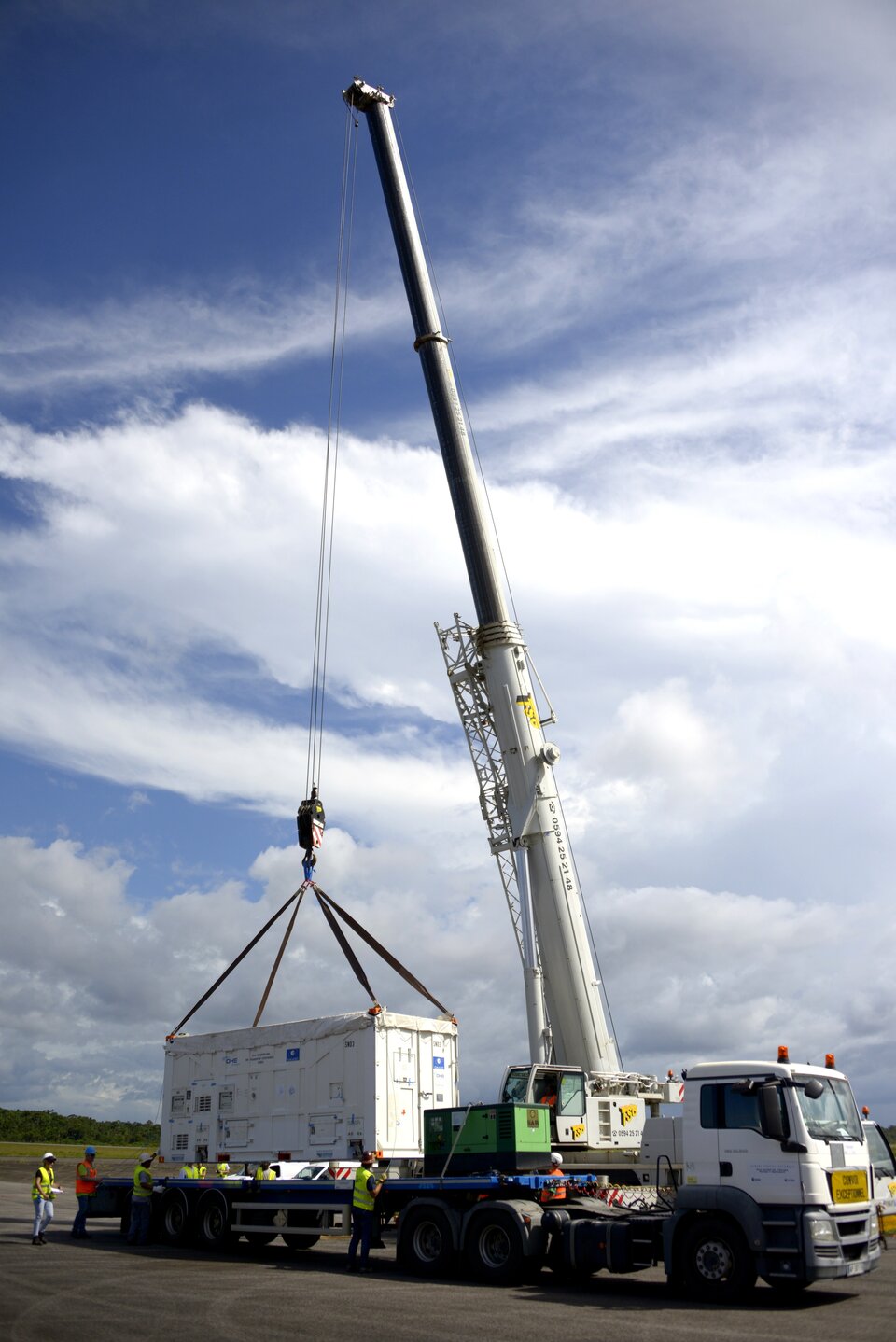
The cryogenic main stage of this Ariane 5, known as the EPC – from its French title Etage Principal Cryogénique – arrived by sea at French Guiana’s Port Pariacabo on 30 May.
The Galileo System began Initial Services on 15 December 2016, and a growing number of commercial devices are using Galileo today. Completion of the constellation should improve Galileo’s positioning accuracy further still.
But Galileo satellites will continue to be launched into the future: a further 12 Galileo ‘Batch 3’ satellites were ordered last year, supplementing the 26 built so far to provide further in-orbit spares, and replacements for the oldest Galileo satellites, first launched in 2011.
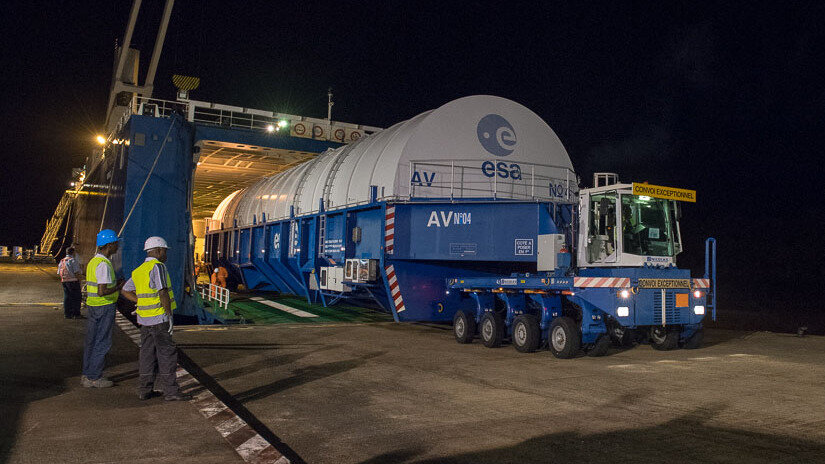
A steady stream of orbital spares, ready to replace satellites reaching the end of their operational lives, is essential to ensure Galileo continues operating seamlessly.
Looking further ahead, with the aim of keeping Galileo services as a permanent part of the European and global landscape, new satellites will be required by the middle of the next decade, offering improved performance and added features.

About Galileo
Galileo is Europe’s own global satellite navigation system, consisting of both the satellites in space and their associated ground infrastructure.
The definition, development and in-orbit validation phases were carried out by ESA, and co-funded by ESA and the European Commission. This phase created a mini-constellation of four satellites and a reduced ground segment to validate the overall concept, ahead of further deployment.
Success led to the current Full Operational Capability phase, fully funded by the EU and managed by the European Commission. The European Commission and ESA have a delegation agreement by which ESA acts as system design authority and procurement agent on behalf of the European Commission.


